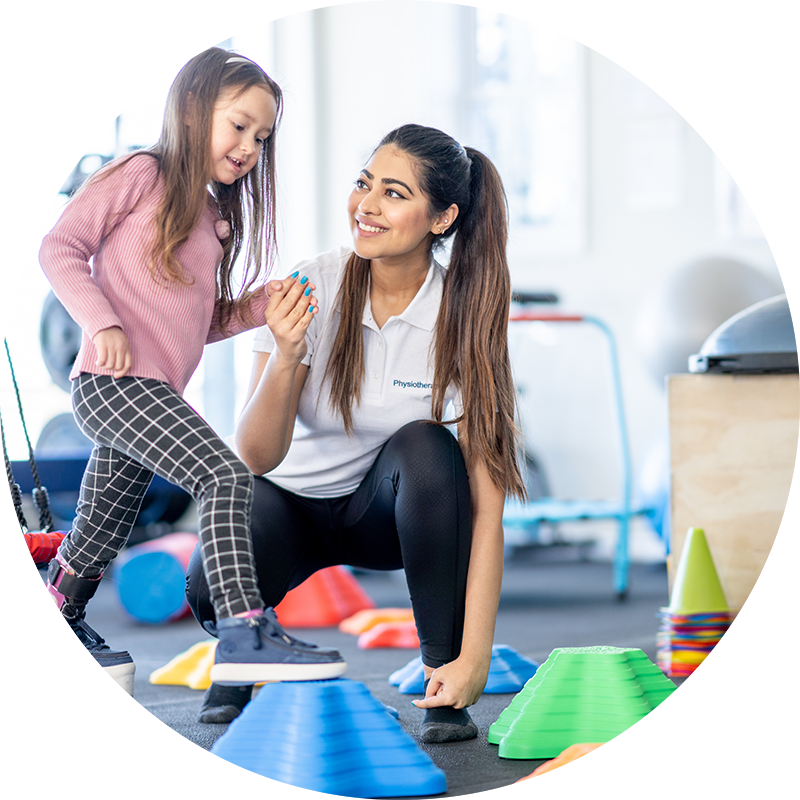
Physical therapy to improve movement, coordination, and confidence
At Exploration Kids Therapy, our pediatric physical therapy services help children build strength, balance, and coordination to move with confidence in everyday life. Whether your child is recovering from an injury, managing a developmental delay, or working toward new physical milestones, our team provides individualized support tailored to their unique needs. Through fun, goal-oriented activities and family collaboration, we empower children to develop the motor skills and endurance needed to thrive at home, school, and play.
Physical therapy helps children strengthen their muscles, improve balance, and develop endurance for everyday movement. These skills support mobility, independence, and participation in activities at home, school, and play.
PT focuses on gross motor development, from walking and running to climbing and jumping. Through fun, goal-based exercises, children enhance coordination, posture, and body awareness, improving overall physical performance.
As children gain new physical abilities and overcome movement challenges, they build confidence and a love for staying active. This progress fosters self-esteem and encourages lifelong participation in healthy movement and play.

Physical therapy is a collaborative process that grows with your child. Our therapists partner with caregivers, educators, and healthcare providers to reinforce progress across all environments. Ongoing evaluations and family communication ensure therapy remains effective, motivating, and meaningful over time.
Pediatric physical therapy (PT) helps children improve strength, balance, coordination, and mobility so they can move confidently and participate fully in daily activities like play, school, and sports.
Children who have difficulty with walking, running, climbing, balance, coordination, or overall physical strength may benefit from PT. A professional evaluation can help determine if therapy is appropriate for your child’s needs.
The evaluation includes assessments of posture, gait, range of motion, strength, endurance, and motor skills. The therapist gathers information from parents, teachers, and caregivers to create a clear understanding of your child’s physical abilities and challenges.
Pediatric PT can begin in infancy and continue through adolescence. Services are tailored to each child’s developmental stage and goals — whether they’re learning to crawl, improving balance, or recovering from an injury.
Sessions typically last 30–60 minutes and may be scheduled weekly or more often, depending on your child’s individualized treatment plan and progress.
Yes! Pediatric PT sessions are play-based and engaging. Children participate in fun, movement-centered activities that help them build strength, coordination, and confidence while having a great time.
Your therapist will track your child’s progress toward specific goals and provide regular updates. You’ll also receive strategies to support skill development and movement practice at home.
Absolutely. Pediatric PT targets coordination, balance, and postural control — helping children move more efficiently and safely in daily activities, sports, and play.
The duration depends on your child’s individual goals and rate of progress. Some children benefit from short-term therapy to reach specific milestones, while others may need ongoing support to maintain and strengthen physical skills.
Therapists provide exercises, stretches, and movement activities for home or school to reinforce therapy goals. Practicing these activities regularly helps your child continue building strength and confidence between sessions.